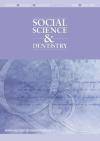Social Science and Dentistry

- Cover Date:
- June 2012
- Print ISSN:
- 2040-4263
- Vol:
- 2
- Issue:
- 1
Patient satisfaction following treatment with intravenous sedation
Objectives: We examined aspects of the patient experience and assessed patient satisfaction, after treatment with intravenous sedation in the Department of Oral Surgery, King’s College Hospital NHS Foundation Trust. Methods: N=100 oral surgery patients completed a self-report questionnaire at the end of their treatment session, which assessed satisfaction with various aspects of their visit. Results: The majority of patients rated excellent or very good when thinking about their relationship with the dental team. Most of them strongly agreed or agreed that the dental team were thorough in doing the procedure and gentle when they worked on patients. Patients reported that they were satisfied overall with their visit and felt they were treated by experts. Conclusion: High satisfaction levels were observed in main (e.g. the way patients were treated by staff) and more peripheral factors (e.g. accessing the department) to do with patients’ treatment under sedation. These findings support current work on predictors of patient satisfaction in health-care settings.
Key words: Intravenous sedation, patient satisfaction, oral surgery
- Article Price
- £15.00
- Institution Article Price
- £
- Page Start
- 10
- Page End
- 14
- Authors
- Sophie C. Clark, Koula Asimakopoulou
Articles from this issue
- Title
- Pg. Start
- Pg. End
- Perceptions of Australian Mothers on Infant Teething: A Pilot Investigation Using a Mixed Methods Approach
- 3
- 11
- AFTER and beyond: cancer recurrence fears and a test of an intervention in oral and oropharyngeal patients
- 29
- 38
